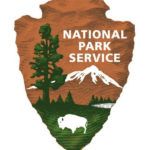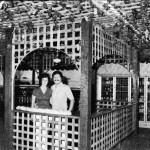Despite deciding not to extend its parcel fee for this year, the Community Service Area 38 (Pine Cove) Advisory Committee is moving forward on several projects to improve and enhance the Hill’s fire defense.
The purchase of a Type 6 quick-attack vehicle is the most prominent. The committee has been urging Riverside County to purchase another engine for Station 23 (Pine Cove) for several years. The committee even included money in its budget last year and this year for the purchase. The CSA 38 cash balance was slightly more than $720,000 at the end of May, according to the financial report.
However, Cal Fire and Riverside County Fire Department Division Chief Bill Weiser reported to the committee that the county thinks the smaller Type 6 vehicle would actually be better and more efficient for use in Pine Cove than a larger engine.
“The big plus is this engine is better in the bad weather on the Hill,” he said. “It will give more versatility to the crews at Station 23, and is better in the ice and snow.”
The Type 6 engine will cost about $250,000 or slightly more, which is less than the Type 3 engine already at the station. It will have water-pumping capability, has room for emergency medical equipment and will hold the same size crew, according to Weiser. The county is purchasing Type 6 vehicles for several stations in the valley.
“On-duty personnel will have the discretion to use what equipment is required,” he added.
The fiscal year 2016-17 CSA 38 budget also includes funding for a wood chipper and masticator. These have not been purchased while RCFD evaluates which models might be most effective on the Hill, as well as considers several other related issues, such as what kind of vehicle would move the equipment.
Several committee members were concerned that this equipment would be used more often in other locations than Pine Cove. Weiser assured them that the committee controls the equipment’s use. Michael Franklin, from the county’s Economic Development Agency’s CSA management team, also emphasized that if the equipment were needed for another project, EDA would assist the committee to prepare a contract and agreement for its use.
Weiser emphasized the value of these pieces to the construction of fuelbreaks. He has discussed the maintenance and extension of fuelbreaks in Pine Cove with U.S. Forest Service local staff.
While several issues remain, Weiser discussed four different fuelbreaks being considered for immediate work. One of the issues will be preparing a plan that meets the California Environmental Quality Act criteria. He said RCFD may need some help from the CSA committee to hire a licensed forester to prepare the plan.
“We will try to protect the whole community,” he emphasized.
The committee also discussed purchasing more fire hydrants in the community. Vice Chair Marge Muir expressed some caution about using CSA funds for this purpose since the parcel fee will go away. But other members stressed the hydrants were for fire protection of the whole community and were not just the Pine Cove Water District’s responsibility to purchase.
Last on the committee’s agenda was creating a committee to investigate the use and future of Squad 23 at the station. When the quick-attack vehicle arrives and has EMS capability, the squad’s usefulness will decline. The committee — composed of CSA committee members Robert Hewitt and Muir, American Medical Response Manager Jack Hansen and Weiser or an appointee from RCFD — will gather information about what alternatives the committee may have for the squad’s future.
Ahead of the subcommittee’s work, Weiser offered to have a mechanic inspect the squad to assess its operational condition.
Before the meeting ended, Hansen reported that in the first year of AMR’s operation on the Hill, it received 220 medical calls, of which more than half (118) became transports to medical facilities. These calls served Pine Cove, Mountain Center and the Lake Hemet area.










